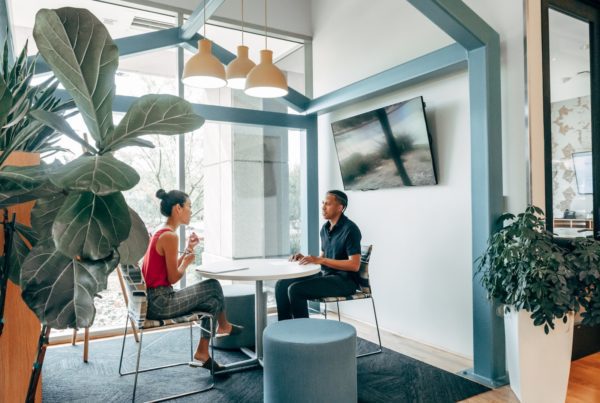Writing a cover letter can be intimidating, especially when you’re applying for a new job or trying to stand out in a competitive job market. But with a little planning and effort, you can write a cover letter that will grab the attention of hiring managers and help you land an interview. Here are some tips to help you write a stand-out cover letter:
Use a professional tone and format
When writing a cover letter, it’s important to use a professional tone and format. This means using a formal, business-like writing style and avoiding slang or overly casual language. You should also use a professional font and layout, with clear headings and paragraphs.
To create a professional tone, try using language that is formal but not overly stuffy or rigid. Use active verbs and positive language to convey enthusiasm and confidence. Avoid using overly casual language, such as contractions or emojis, as this can make you seem unprofessional.
It’s also important to use a professional layout. This means organizing your letter into clear headings and paragraphs, with plenty of white space on the page. Use bullet points or numbered lists to break up the text and make it easier to read. Be sure to also leave plenty of margins around the edges of the page and use a font size that is easy to read.
Address the letter to a specific person
Try to address the letter to a specific person whenever possible. This shows that you have taken the time to research the company and are genuinely interested in the position.
To find out the name of the person who will be reading your cover letter, try checking the job listing or company website for the name of the hiring manager or the person responsible for reviewing job applications. A search on LinkedIn is also a good way to find the correct hiring manager, or even ask contacts you may have at the company.
If you are unable to find the name of the person who will be reading your cover letter, you can use a general greeting such as “Dear Hiring Manager”.
Research the company and role well so you can customize the letter
it’s important to take the time to research the company and the role you’re applying for. This will help you tailor your letter to the specific needs of the company and position and also show that you are a serious and qualified candidate.
To research the company, you can start by looking at their website and social media profiles. Look for information about their mission, values, and products or services. You can also try searching for news articles or press releases to learn more about the company’s recent activities and accomplishments.
To research the role, you can start by reading the job listing carefully and asking your recruiter if you’re applying via an agency. Look for information about the responsibilities and qualifications required for the position and make note of any specific skills or experience that are mentioned. You can also try reaching out to people who work at the company or have held similar positions to learn more about the role and what it entails.
State why you’re applying for the role
Clearly state why you’re applying for the role. This will help the reader understand your motivation for applying and show that you’re genuinely interested in the position.
To do this, you can start by saying what you know about the company and the role, and what it is about them that you admire. You can also mention any specific qualities or achievements of the company, its values, and its culture that have drawn you to apply.
By stating why you’re applying for the role, you can show the reader that you are a proactive and motivated candidate who is eager to learn more about the company. This can help to make a positive impression and increase your chances of getting an interview.
State how your experience relates to the role
Highlight your relevant experience and explain how it will be beneficial to the role you’re applying for. This will help the hiring manager understand how your experience has prepared you for the position and why you are a good fit for the company.
Highlight any notable achievements from your past roles
It’s important to highlight your career achievements and explain how they will be beneficial to the new role you’re applying for. This will help the reader understand your value as a candidate and help you stand out as a good match for the company and role.
It’s also a good idea to mention any specific benefits or contributions you feel you can bring to the new role. For example, you might mention any innovative ideas or strategies you have implemented in previous roles or any new technologies or processes you have introduced.
Highlight your skills
Briefly state your key skills relevant to the role and explain how you have used them in previous roles. Try to use concrete examples to demonstrate your skills, rather than just listing them. For example, you might say “I have excellent communication skills and have used them to successfully lead team meetings and present in trade meetings.”
It’s also a good idea to tailor your skills to the specific needs of the role you’re applying for. For example, if the job listing mentions a specific software or technology, be sure to mention any experience you have using that software or technology.
Be upfront about career breaks and short-lived roles
If you have any gaps or short-lived roles in your work history, it’s important to be transparent about them, which you can do in your cover letter. While gaps and short-loved roles in employment can sometimes raise concerns for hiring managers, being upfront about the reasons can help to alleviate these concerns.
You can explain the reasons in a brief and matter-of-fact way. For example, you might say “I took time off to care for a family member” or “I travelled abroad for an extended period.”
Be concise
Keep your cover letter concise, try to limit it to no more than one page in length. This means being selective about the information you include and focusing on the most important points.
You can also use bullet points or numbered lists to break up the text and make it easier to read. This can help the reader to quickly scan your letter and get a sense of motivation for applying and skills.
Proofread!
Before sending your cover letter, it’s important to proofread it carefully to ensure that it is free of spelling and grammar errors. Even a small mistake can make you appear careless or unprofessional, so it’s worth taking the time to double-check your letter.
To proofread your cover letter, you can start by reading it out loud to catch any errors that you may have missed. You can also ask a friend or family member to read it over and give you feedback.
There are also tools available that can help you catch mistakes. Grammarly.com is a popular grammar checking tool that can help you identify and correct errors in your writing. Simply copy and paste your cover letter into the tool, and it will highlight any mistakes and suggest corrections.
Close strong!
The way you end your cover letter is just as important as the way you start it.
To close your letter, you can start by thanking the reader for considering you for the position. You can also express your enthusiasm for the opportunity to be interviewed and learn more about the company and the role.
It’s also a good idea to let the reader know that you are available for further discussion or to answer any questions they may have.
Follow these tips and you’ll be able to write a stand-out cover letter that will help you make a good first impression, improve your chance of securing an interview, and take the first step towards your dream job.





